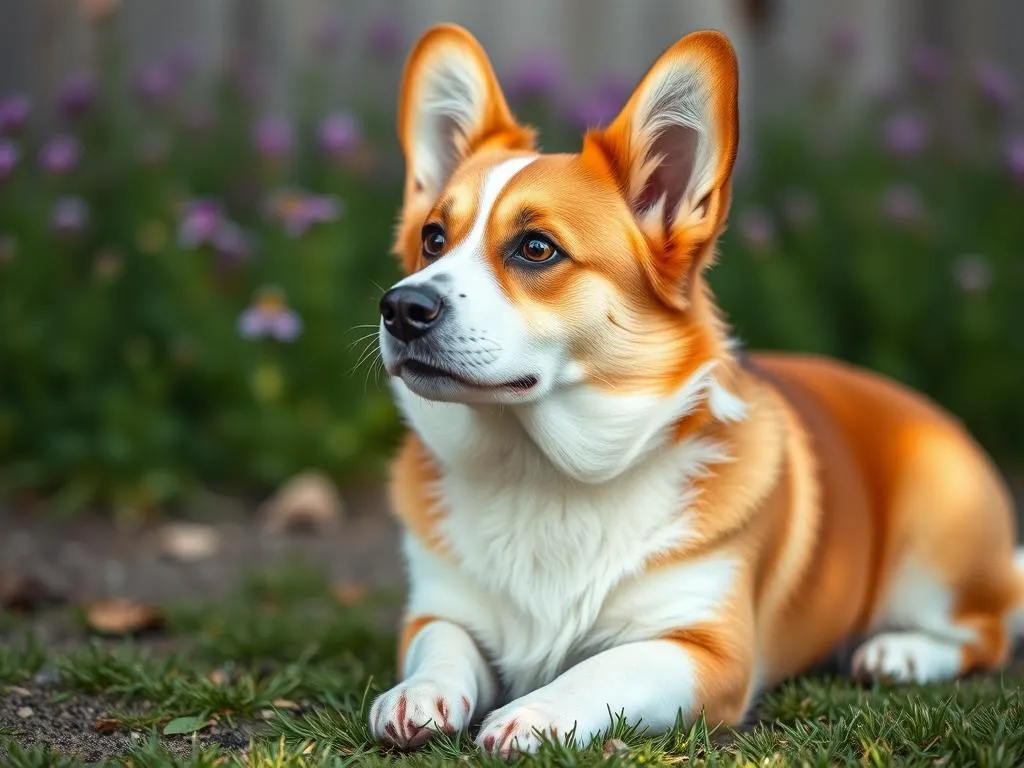
Introduction
The Corgi has skyrocketed in popularity over recent years, captivating dog lovers worldwide with their adorable looks and charismatic personalities. Known for their short legs and big ears, these delightful dogs have become a staple in popular culture, frequently seen in online memes and even in royal households. This article dives into important Corgi facts, offering insights for potential owners and enthusiasts alike.
There are two main breeds of Corgis: the Pembroke Welsh Corgi and the Cardigan Welsh Corgi. While they share some similarities, they also have distinct differences in history, appearance, and temperament. Understanding these nuances can help individuals make informed decisions about welcoming a Corgi into their lives.
History of Corgis
Origins of the Corgi
The Corgi has roots dating back to ancient times in Wales. They were bred primarily for herding cattle, thanks to their intelligence and agility. The breed’s name is believed to have Celtic origins, translating to “dwarf dog,” which is fitting given their short stature. Corgis played a significant role in rural Welsh life, assisting farmers in driving and managing livestock.
Evolution of the Breeds
Over time, two distinct breeds emerged: the Pembroke and the Cardigan. The Pembroke Welsh Corgi is believed to have been influenced by the arrival of the Shetland Sheepdog and other breeds, leading to its more refined appearance and shorter tail. In contrast, the Cardigan Welsh Corgi is one of the oldest herding breeds in Britain, with a history that can be traced back over 3,000 years. Although both breeds were used for similar purposes, their evolution diverged due to geographical and historical factors.
Physical Characteristics
General Appearance
Both breeds of Corgis share a compact and sturdy build, but there are subtle differences. Typically, a Corgi stands about 10 to 12 inches tall at the shoulder and weighs between 25 to 30 pounds. Their short legs are paired with a long, muscular body, giving them a distinctive silhouette.
When it comes to coat color, Corgis can be found in various shades, including red, sable, fawn, and even brindle. The Pembroke often has a more limited color palette, while the Cardigan showcases a broader array of colors, including blue merle and black.
Distinctive Features
One of the most recognizable features of a Corgi is their large, erect ears. Both breeds have a fox-like appearance, but the Pembroke typically has a docked tail, while the Cardigan has a long, bushy tail. Their compact body shape allows them to be agile and quick, making them effective herders.
Temperament and Behavior
Corgi Personality Traits
Corgis are known for their friendly and outgoing nature. They tend to be affectionate with their families and are often good with children. Their intelligence makes them highly trainable, though they can sometimes exhibit stubbornness. Social and playful, Corgis thrive on interaction with humans and other dogs.
Behavioral Traits
Due to their herding background, Corgis possess a strong instinct to chase and herd. This behavior can lead to unique quirks, such as nipping at heels. Proper training and socialization from an early age can help mitigate these instincts, ensuring that they behave appropriately in various settings.
Training Corgis
Training a Corgi can be a rewarding experience, but it also comes with its challenges. Utilizing positive reinforcement methods, such as treats and praise, is effective. Consistency is key, as these dogs respond best to structured training routines. Common challenges include their independent nature and potential stubbornness, but patience and persistence usually yield positive results.
Health and Lifespan
Common Health Issues
Like any breed, Corgis can be prone to certain health issues. Some common concerns include hip dysplasia, eye conditions like cataracts, and obesity. Regular veterinary check-ups and a healthy diet are vital in managing these risks and ensuring a long, healthy life.
Lifespan Expectations
The average lifespan of a Corgi ranges from 12 to 15 years. Factors such as genetics, diet, and overall health can significantly influence their longevity. Responsible breeding practices and regular veterinary care can help ensure that Corgis live happy, healthy lives.
Corgi Care Requirements
Nutritional Needs
Feeding a Corgi a balanced diet is crucial for their health. High-quality dog food that meets their nutritional needs is essential. Owners should monitor their dog’s weight and adjust feeding amounts as necessary, as Corgis are prone to obesity due to their love for food and less active lifestyle.
Exercise and Activity Levels
Corgis are energetic dogs that require regular exercise. Daily walks, playtime in the yard, and interactive games can help keep them physically and mentally stimulated. Engaging in activities such as agility training or herding trials can also provide an outlet for their energy.
Grooming and Maintenance
Grooming is an essential part of Corgi care. Their double coat requires regular brushing, especially during shedding seasons, to prevent matting and excessive hair around the home. Regular dental hygiene and nail trimming are also important aspects of maintaining your Corgi’s overall health.
Corgis as Family Pets
Suitability for Families
Corgis make excellent family pets due to their friendly disposition and playful nature. They are known to be loyal companions and can adapt well to various living situations, whether in a house with a yard or an apartment, provided they receive adequate exercise.
Interaction with Children
Corgis generally get along well with children. Their energetic and playful nature can make them great playmates. However, supervision is important, especially with very young children, to ensure safe interactions. Teaching children how to properly approach and play with a Corgi can foster a positive relationship.
Corgis and Other Pets
When introduced properly, Corgis can coexist peacefully with other pets. Early socialization helps them learn to interact appropriately with various animals. It’s essential to monitor their interactions, especially with smaller pets, due to their strong herding instincts.
Fun Facts About Corgis
Corgis in Popular Culture
Corgis have made their mark in popular culture, often associated with royalty, particularly Queen Elizabeth II, who has owned over 30 Corgis throughout her life. They also appear in various movies, TV shows, and even merchandise, showcasing their widespread appeal.
Unique Traits and Quirks
Beyond their charming looks, Corgis exhibit quirky behaviors that endear them to owners. For instance, they are known for their playful antics, such as “Corgi butts” wiggling as they run. Their intelligence often leads to clever problem-solving, sometimes resulting in amusing outcomes.
Conclusion
In summary, Corgis are a delightful breed that combines charm, intelligence, and a playful spirit. Understanding Corgi facts—from their history and physical characteristics to their care requirements—can help potential owners appreciate these wonderful dogs even more. With the right knowledge and commitment, a Corgi can bring immense joy and companionship to any household. Whether you’re considering bringing a Corgi home or simply admire them from afar, there’s no denying the happiness they spread wherever they go.









